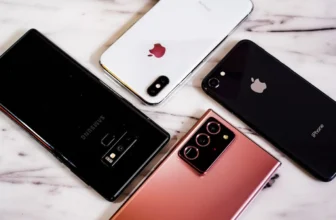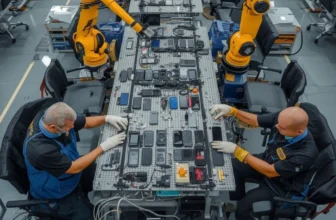
Giving your child their first smartphone is a big decision. Whether it’s for safety, learning, or staying in touch, finding the right device that’s both child-friendly and parent-approved can feel overwhelming.
In this guide, we’ll break down the key factors to consider when choosing a smartphone for kids — from price and durability to parental controls and screen time limits.
✅ Consider the Child’s Age and Maturity
Not every child is ready for a full-featured smartphone. The younger the child, the more limited the features should be.
- Ages 6–9: Consider basic phones or kids’ smartwatches with calling and GPS tracking.
- Ages 10–13: Entry-level smartphones with parental controls and limited apps work well.
- Ages 14+: Teenagers can handle more advanced phones but still benefit from monitoring tools.
Read More: Top Phones for Business Professionals
💸 Set a Budget (And Stick to It)
For most kids, especially beginners, there’s no need to splurge on a flagship phone. Look for:
- Budget range: £100–£200
- Mid-range (for teens): £200–£300
- Avoid expensive devices that can easily be lost or damaged.
🧒 Look for Built-In Parental Controls
Parental controls help you manage how and when your child uses their phone. Prioritize smartphones that let you:
- Set screen time limits
- Approve or block apps
- Monitor usage and location
- Filter web content
Tip: Apple’s Screen Time and Google’s Family Link are powerful tools built into iPhones and Android phones.
🛡️ Focus on Safety and Security
Choose a phone that supports strong safety features, such as:
- GPS tracking so you can locate your child
- App approval to avoid unsafe downloads
- Emergency calling features
- Biometric locks (like fingerprint or facial recognition)
📱 Durability and Battery Life Matter
Kids drop things—often. Look for phones with:
- Strong build quality or protective casing
- IP-rated water resistance (if possible)
- Long battery life (4,000mAh+ recommended)
- Replaceable cases and screen protectors
Consider brands like Nokia, Motorola, or rugged models from CAT or Ulefone.
🔍 Decide Between New, Refurbished, or Hand-Me-Down
Not sure if you should buy new?
- Refurbished phones: Cost-effective and good for first-time users
- Hand-me-downs: Great option if you already have an older device
- New phones: Good for teens or kids who need up-to-date software and security
Just make sure the phone can still receive software and security updates.
📦 Choose a Device with Basic Features Only
Kids don’t need cutting-edge specs. Instead, focus on:
- 4G or 5G connectivity (for fast, safe access)
- Good battery life
- Decent camera (not essential but fun)
- Storage (32–64GB is plenty for most kids)
- Simple UI (easy to navigate interface)
🛍️ Best Phones for Kids in 2025
Here are some parent-approved models that offer good value, controls, and durability:
| Model | Price | Why It’s Good |
|---|---|---|
| Nokia G22 | ~£149 | Repair-friendly, durable, and reliable |
| Samsung Galaxy A05s | ~£139 | Trusted brand, great for teens |
| Moto G14 | ~£129 | Clean UI, solid build, good battery |
| iPhone SE (Refurb) | ~£200 | iOS parental controls, compact design |
| Xplora XGO3 Watch | ~£99 | Great for younger kids, calls + GPS only |
Also Know About: Phones with the Best Battery Life
👪 Final Thoughts: Balance Freedom and Safety
Giving your child a smartphone is about more than just choosing the right device—it’s about setting healthy habits and boundaries. Be sure to:
- Have regular conversations about online safety
- Review their app usage and screen time
- Set rules together (e.g., no phones during meals or bedtime)
By choosing the right phone and setting up strong safeguards, you can help your child stay connected, responsible, and safe in today’s digital world.
FAQ’s
There’s no universal “right” age, but many parents consider ages 10–13 appropriate for a basic smartphone. Younger children may benefit more from simpler devices like smartwatches with calling and GPS features.
Both are good options. iPhones offer robust parental controls through Screen Time, while Android phones (especially those using Google’s Family Link) are often more affordable and customizable. Choose based on your comfort with managing parental settings.
Use built-in parental controls:
iPhones: Settings → Screen Time
Android: Google Family Link app
You can set daily limits, schedule downtime, and block specific apps.
Refurbished phones are a smart, budget-friendly option—especially for younger kids. They’re usually reliable and come with a warranty. Just ensure the phone supports the latest updates and isn’t too outdated.
Focus on durability, battery life, parental controls, and basic functionality like calling, messaging, and GPS. Kids don’t need high-end specs or advanced cameras to start with.





